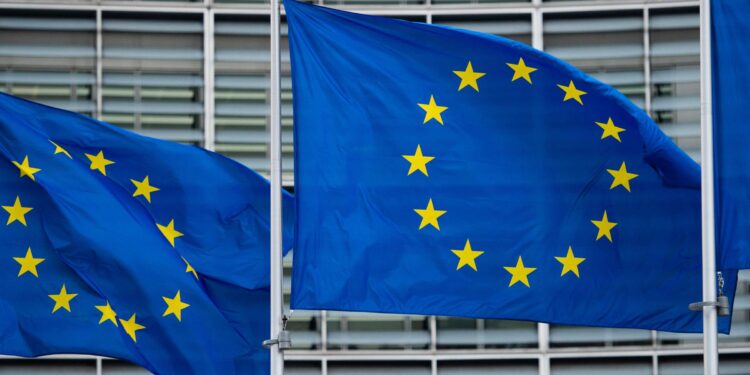In a significant breakthrough following years of tension, the European Union and the United Kingdom have reached an agreement on Gibraltar’s status after Brexit, according to reports from Le Monde.fr. The deal aims to resolve longstanding disputes over the British overseas territory, located at the southern tip of the Iberian Peninsula, ensuring smoother cooperation on border controls, trade, and security. This development marks a critical step in stabilizing relations between Madrid and London while addressing the complex challenges posed by Gibraltar’s unique geopolitical position in a post-Brexit Europe.
EU and Britain Reach Agreement on Gibraltar’s Trade and Border Arrangements
The European Union and the United Kingdom have finalized a critical agreement addressing Gibraltar’s complex trade and border issues following Brexit. This deal aims to provide clarity and stability for the region, whose unique status has long been a geopolitical sticking point. Key provisions focus on facilitating the free movement of goods and services, while reinforcing controls to meet both EU standards and UK sovereignty concerns. Stakeholders have welcomed the compromise as a pathway to smoother cross-border operations and economic resilience for Gibraltar’s communities.
Highlights of the agreement include:
- Introduction of simplified customs procedures to reduce delays at the border
- Enhanced cooperation on security and immigration between Gibraltar and Spain
- Commitments to protect the local fishing industry through joint management frameworks
- Establishment of a bilateral forum for ongoing dialogue and dispute resolution
| Aspect | Before Agreement | After Agreement |
|---|---|---|
| Border Checks | Frequent delays, unclear procedures | Streamlined, joint oversight |
| Trade Flow | Subject to full customs control | Facilitated with risk-based inspections |
| Fisheries Management | Contentious, limited cooperation | Co-managed with shared quotas |
| Security Coordination | Minimal cross-border collaboration | Regular joint operations |
Implications of the Deal for Gibraltar’s Economy and Local Communities
The new agreement offers a crucial boost to Gibraltar’s economy, which has long relied heavily on cross-border commerce and tourism. By facilitating continued access to the EU single market through Spain, local businesses are expected to experience fewer disruptions, particularly in sectors such as retail, finance, and online gaming. This easing of restrictions could translate into a noticeable increase in consumer confidence and investment, preserving jobs that had been under threat since the Brexit referendum.
Local communities are also poised to benefit from the deal’s provisions, which aim to protect the daily lives of thousands of commuters who cross the border for work or education. Among the key outcomes:
- Streamlined border controls to reduce wait times and bureaucratic hurdles
- Protection of healthcare and social security rights for cross-border workers
- Support for bi-national cultural and educational projects to maintain strong ties
| Sector | Expected Impact |
|---|---|
| Tourism | Increased visitor flow through eased border checks |
| Finance | Sustained access to EU clients and transactions |
| Retail | Stabilized supply chains and consumer confidence |
Expert Recommendations for Ensuring Smooth Implementation and Long-Term Stability
Establishing clear communication channels stands as a cornerstone for the effective execution of the Gibraltar agreement. Experts emphasize that transparent and continuous dialogue between the EU, British authorities, and Gibraltar’s local government is vital to preempt potential misunderstandings and swiftly resolve emerging challenges. Regular bilateral meetings combined with dedicated liaison offices could serve as mechanisms to monitor progress and address concerns in real time, ensuring that the delicate balance achieved through the deal remains intact.
To fortify the agreement’s durability, specialists recommend focusing on several key areas:
- Robust legal frameworks: Ensure that all provisions are clearly embedded within binding legislations to prevent ambiguity.
- Adaptive border management: Implement flexible yet secure customs procedures that can evolve with changing political and economic contexts.
- Economic cooperation initiatives: Promote joint ventures and trade partnerships that benefit Gibraltar’s economy and foster goodwill.
- Community engagement: Involve local stakeholders to maintain public support and social cohesion.
| Area | Recommended Action | Expected Outcome |
|---|---|---|
| Governance | Establish bilateral oversight committee | Transparent issue resolution |
| Border Control | Introduce smart border technology | Reduced wait times, enhanced security |
| Trade | Create joint economic zones | Increased investment and jobs |
| Community | Launch civic dialogue platforms | Stronger public support |
To Conclude
The agreement between the European Union and Britain marks a significant step in defining Gibraltar’s post-Brexit future, easing tensions that have lingered since the UK’s departure from the EU. While details of the deal aim to safeguard the interests of Gibraltar’s residents and maintain economic stability, both sides acknowledge that ongoing cooperation will be essential to address any emerging challenges. This development underscores the complex negotiations involved in untangling Brexit’s legacy and the continued importance of diplomacy in the region.
















